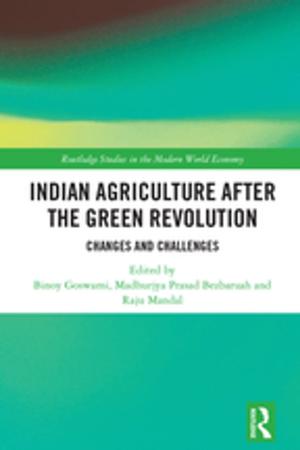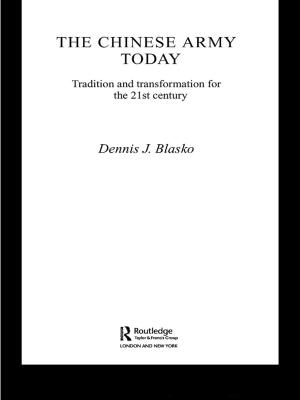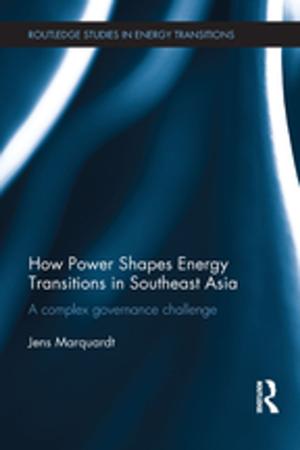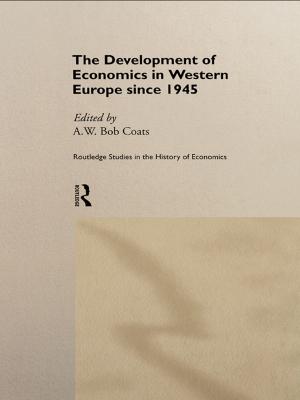| Author: | Simon Green | ISBN: | 9781136619588 |
| Publisher: | Taylor and Francis | Publication: | March 1, 2013 |
| Imprint: | Routledge | Language: | English |
| Author: | Simon Green |
| ISBN: | 9781136619588 |
| Publisher: | Taylor and Francis |
| Publication: | March 1, 2013 |
| Imprint: | Routledge |
| Language: | English |
The Politics of the New Germany continues to provide the most comprehensive, authoritative and up-to-date textbook on contemporary German Politics. The text takes a new approach to understanding politics in the post-unification Federal Republic. Assuming only elementary knowledge, it focuses on a series of the most important debates and issues in Germany today with the aim of helping students understand both the workings of the country's key institutions and some of the most important policy challenges facing German politicians.
For this second edition, the content has been comprehensively updated throughout, augmented by additional factboxes and data, and features new material on:
- Grand coalition
- Lisbon treaty
- Constitutional court
- Financial crisis
- Reform of social policy
- Afghanistan.
Written in a straightforward style by three experts, each of the chapters draws on a rich variety of real-world examples. In doing so, it highlights both the challenges and opportunities facing policy-makers in such areas as foreign affairs, economic policy, immigration, identity politics and institutional reform. The book also takes a bird’s-eye view of the big debates that have defined German politics over time, regardless of which political parties happened to be in power. It pinpoints three key themes that have characterised German politics over the last sixty years; reconciliation, consensus and transformation.
The book is a comprehensive, yet highly accessible, overview of politics in 21st Century Germany and should be essential reading for students of politics and international relations, as well as of European and German studies.
The Politics of the New Germany continues to provide the most comprehensive, authoritative and up-to-date textbook on contemporary German Politics. The text takes a new approach to understanding politics in the post-unification Federal Republic. Assuming only elementary knowledge, it focuses on a series of the most important debates and issues in Germany today with the aim of helping students understand both the workings of the country's key institutions and some of the most important policy challenges facing German politicians.
For this second edition, the content has been comprehensively updated throughout, augmented by additional factboxes and data, and features new material on:
- Grand coalition
- Lisbon treaty
- Constitutional court
- Financial crisis
- Reform of social policy
- Afghanistan.
Written in a straightforward style by three experts, each of the chapters draws on a rich variety of real-world examples. In doing so, it highlights both the challenges and opportunities facing policy-makers in such areas as foreign affairs, economic policy, immigration, identity politics and institutional reform. The book also takes a bird’s-eye view of the big debates that have defined German politics over time, regardless of which political parties happened to be in power. It pinpoints three key themes that have characterised German politics over the last sixty years; reconciliation, consensus and transformation.
The book is a comprehensive, yet highly accessible, overview of politics in 21st Century Germany and should be essential reading for students of politics and international relations, as well as of European and German studies.















